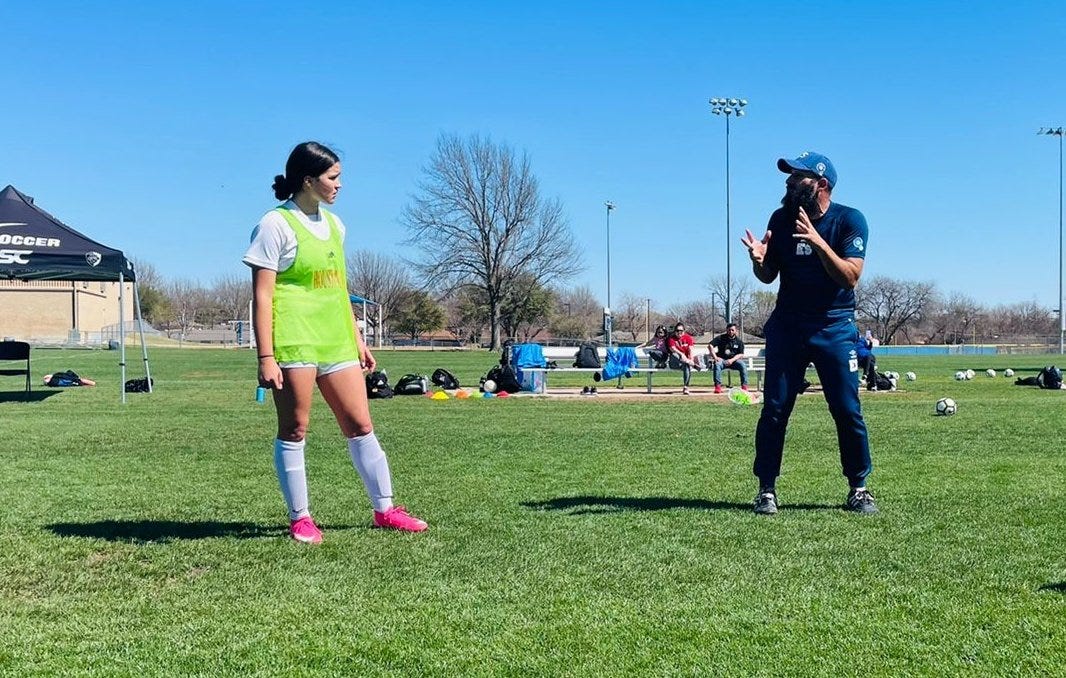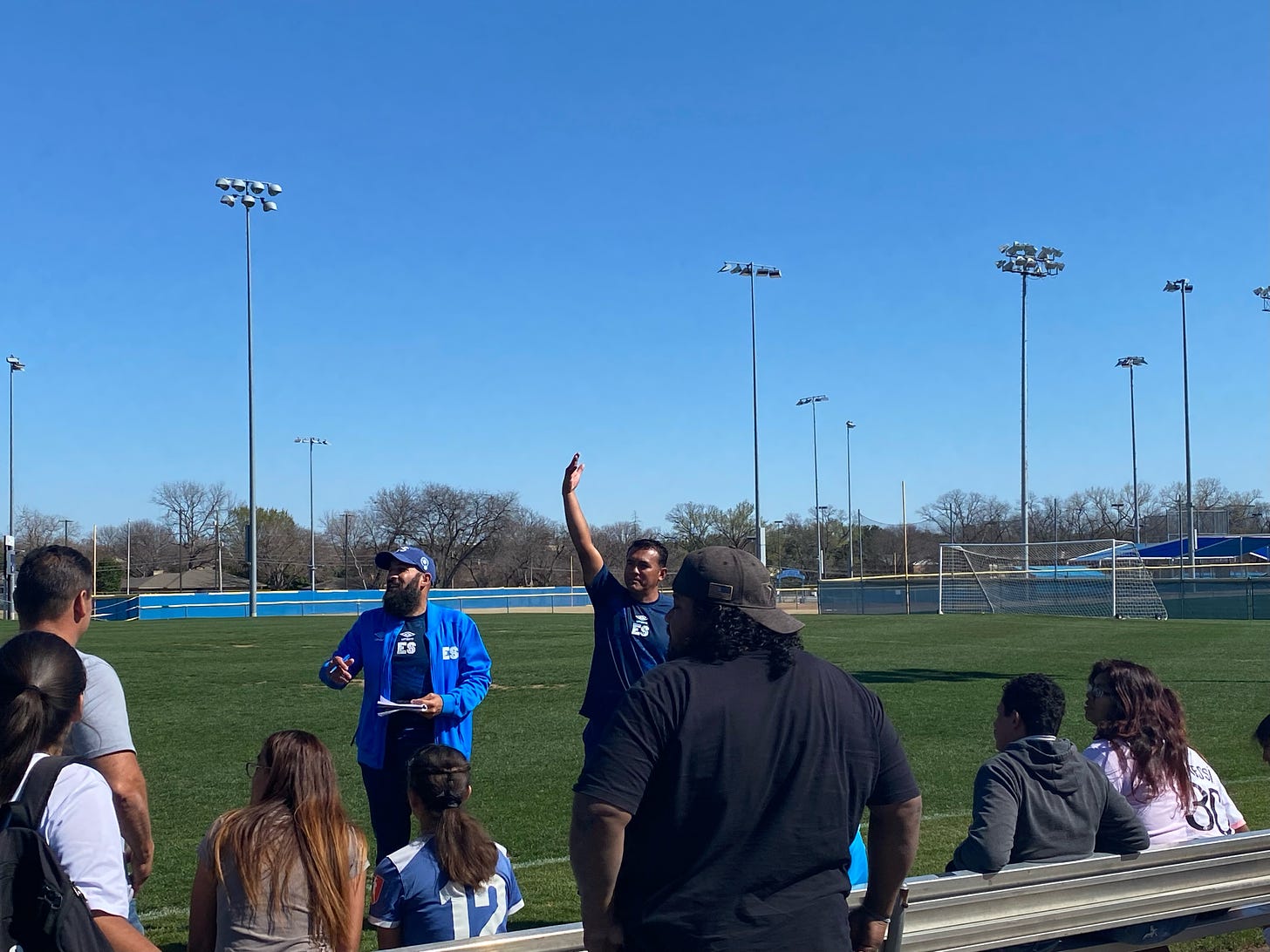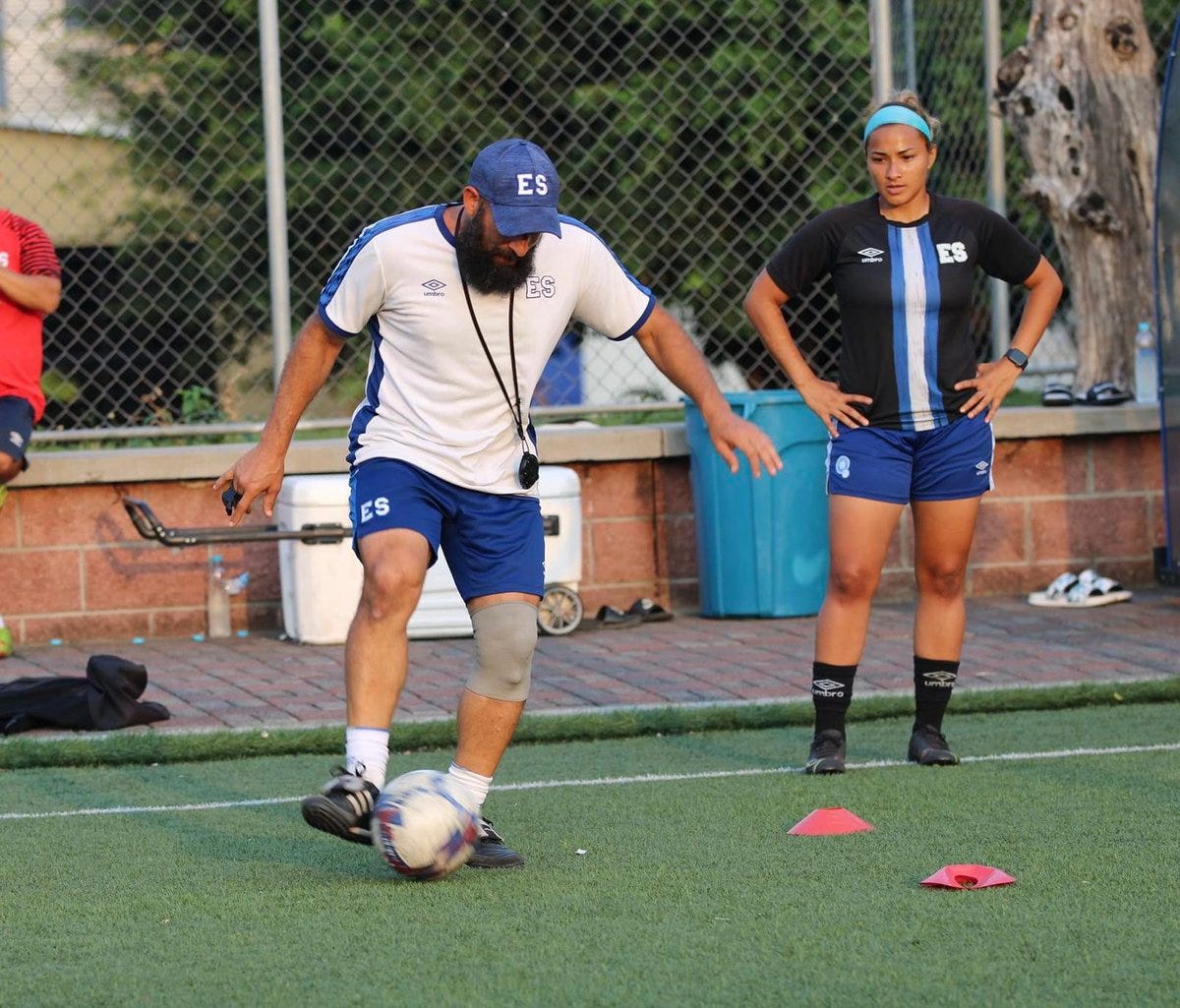🇸🇻 El Salvador deploying near open-door policy in quest to add talent to women's team
Inside the push to boost the Cuscatlecas
Getting CONCACAFed is a newsletter sharing stories and analysis from the Concacaf region.
I write and report on stories other soccer outlets overlook from CCL, World Cup qualification and more:
I was just a little uneasy about the request.
Work in soccer for any amount of time and your DMs fill up with guys calling you “Sir” hoping you’ll connect them with a team that can make their dream of going pro come true - never mind the fact that, as a journalist, I often can’t secure interviews much less set up tryouts.
A tip came from someone I trust, though. Someone legit, who knows the game better than I do. He said there was a girl on his daughter’s team who was a cut above, who El Salvador needed to have on its radar.
After sending an interview request for this story, I sheepishly told Diego Henriquez, the sporting director of Salvadoran federation FESFUT: Hey, there could be a player here, I can pass the info to a coach or a scout or… “To me,” he replied, adding the flex emoji, the El Salvador flag emoji and a soccer ball.
That’s the philosophy for El Salvador. No director is too big-time to scout a player. No player is too small-time for a look.
Seeking out talent in the diaspora, and specifically in the United States, is nothing new in the Concacaf region. But Henriquez and his team in the Salvadoran federation are taking it to new heights.
The hope is to raise the current level for the senior women’s team, which returns to action in World Cup qualification Friday against Barbados ahead of a crucial showdown next week with Panama.
They also want to lay the groundwork for the future, both for women already playing in El Salvador and those who haven’t even considered putting on the shirt of La Selecta.
Rachel Villa is on the third hour of sitting on backless bleachers under the sun at Cox Fields in the Dallas suburb of Farmers Branch. She’s watching her daughter, Sarina, run through an open tryout with just more than a dozen other girls with Salvadoran heritage.
“I’m going to be honest, I haven’t really followed it, and I don’t know exactly what it’s like,” Villa tells me when I aske what she knows about the world of international soccer.
The family found out about the tryout through D’Feeters Kicks Soccer Club, the team Sarina plays for and of the local clubs the Salvadoran federation partnered with to conduct the event last month. The federation also posted an invitation to this event, and the one the next day in Houston, on social media.
Get in touch, show up, stand out and you might be an El Salvador international as soon as next week, when a U-17 camp started at the federation headquarters preparing for the April 23 kickoff of the Concacaf U-17 Women’s Championship.

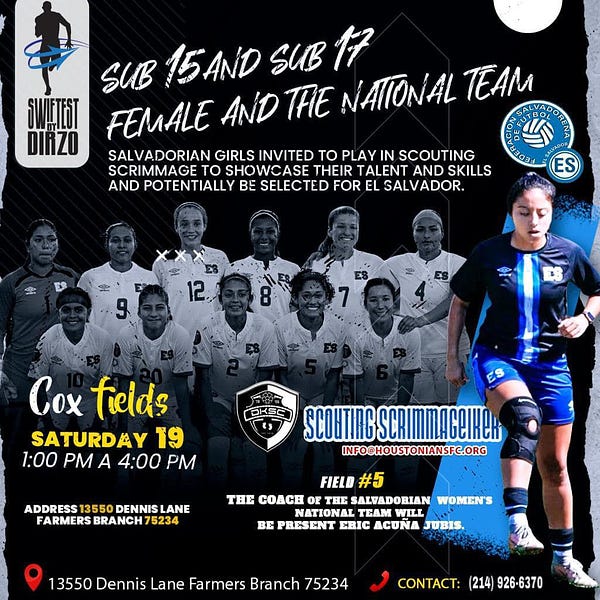
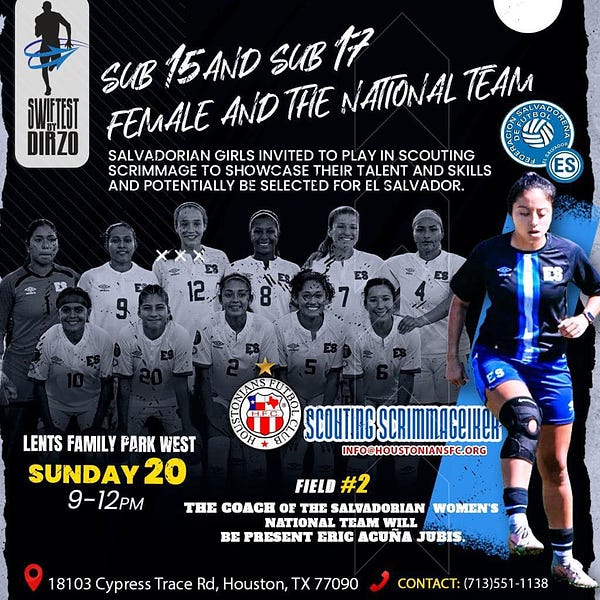
Villa is still coming around to the idea that Sarina and her twin sister, who missed the tryout because of an injury, might have a pathway to become professional soccer players. It’s a career choice that never was accessible to her growing up in San Salvador.
“I think it’s a very good way to lift the women’s soccer culture in El Salvador,” Villa said. “When I was growing up, the opportunity didn’t exist. The United States has stood out with the way it has supported women and girls on the field, giving them the same opportunities as the boys.
“So, I think it’s magnificent that El Salvador is coming here to try and bring talent to improve Salvadoran football.”
That’s the idea for Eric Acuña. After leading the session, the coach of the senior women’s national team and the youth squads has a chat with six U-15 players, three U-17 players and their families, letting them know they have the talent to play for El Salvador at the youth levels. Now, they need to get the girls a Salvadoran passport.
It’s not that he wouldn’t love to find more players in San Salvador, Sonsonate or Usulutan, but the coaching, the opportunities and the time spent on women’s soccer in El Salvador still can’t match what happens on thousands of fields across the United States every week and weekend.
“We (host camps) because there’s a lot of talent,” he told me after the event in DFW. “In El Salvador, myself and my coaching staff been working regularly for 15 months, but the United States has 15 years of doing the work. We’ve got to learn from the places where we can learn from. "
“Where there’s talent, we’re going to look for it.”
It’s the same mentality that saw El Salvador return to the final round of men’s World Cup qualification. La Selecta is playing frequent friendly matches in the United States, often running open tryouts the day before in cities with heavy Salvadoran populations like Los Angeles, Houston and Washington D.C.
“The rebuilding phase has been for the men’s and the women’s side, it’s just the women’s side needs a lot more work to be done,” Henriquez, the sporting director, told me. “We’re working on both programs. There are similarities in the DNA we want to have in El Salvador’s national teams. We’ve been working with both in a similar way.”
While the men’s side has reaped the benefits of players like American-born Eriq Zavaleta and Alex Roldan, Dutch-born Enrico Dueñas and Costa Rica-born Christian Martinez joining the team this time around, the relatively strong base for the men’s game in El Salvador may mean fewer foreign-born players end up in the national teams, especially at the youth level.
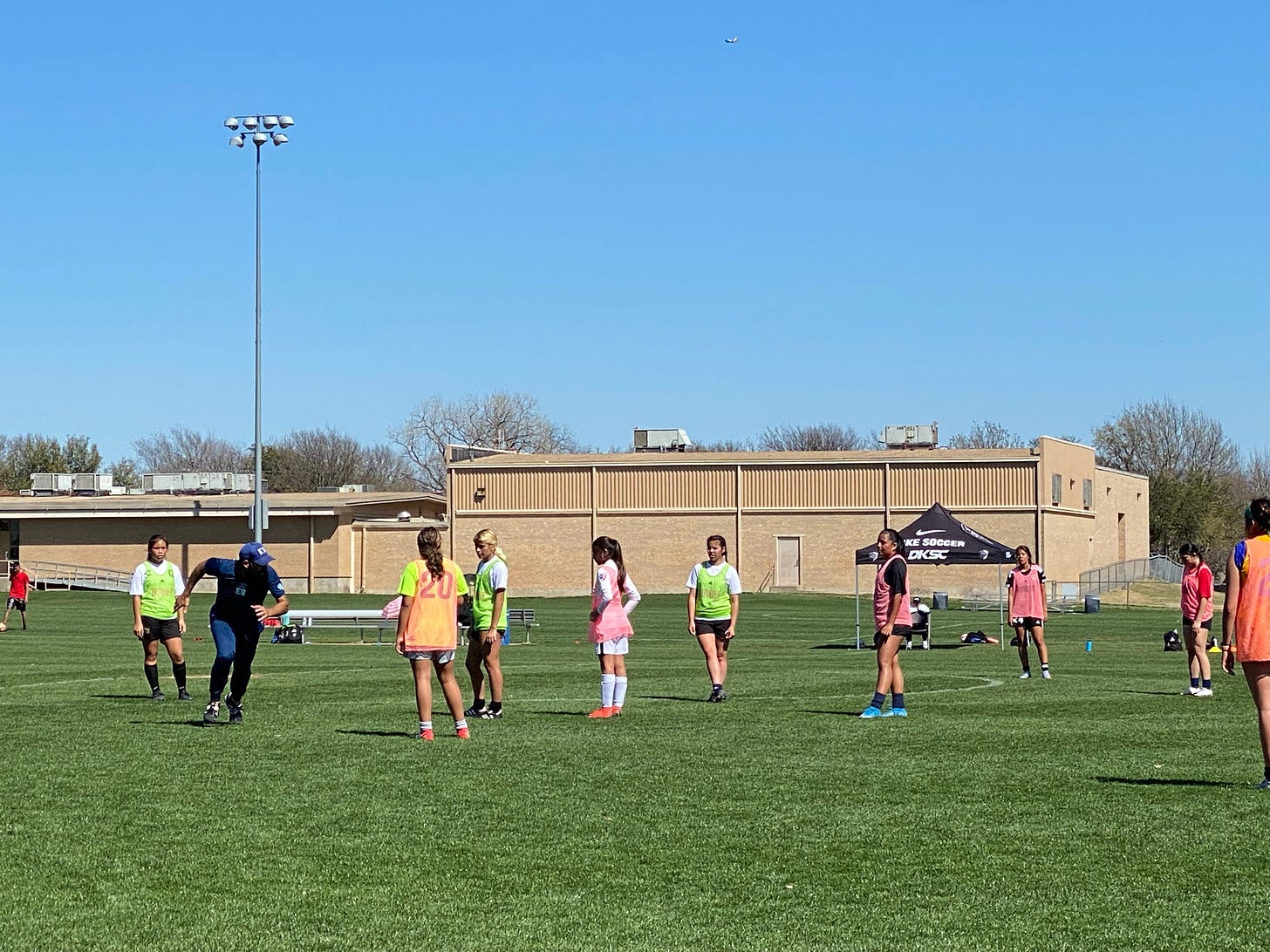
There’s also the difficulty of breaking into the U.S. women’s national team - the world champion - compared to breaking into the men’s side.
“I think Eric has done a great job changing a culture in the woman side where we had a lot of challenges, not just on the field, where trying to compete in Concacaf on the women's side is so much different than the men's side,” Henriquez said. “That difference is immense, it’s huge.
“Having these players born in the U.S. with Salvadoran parents gives us an edge, an advantage on some other Central American countries that are not yet doing it in a structural way and helps us compete much better than we could just with local players.”
It’s fair to say, however, Acuña still has plenty of challenges to work through. His biggest message to the parents of the girls he selected for the camps was that they need a Salvadoran passport. While the consulates in various U.S. cities have been easy to work with, sorting out documentation isn’t always simple.
“We try to make the passport the least burdensome possible. But it is a challenge,” he said, pausing before adding, “Honestly, everything is a challenge. In women’s soccer, everything is a challenge.”
Yet, the coach said, the biggest test remains on the soccer side, finding players who are excited to put on the El Salvador shirt, to travel often to Central America and who have the level needed to get El Salvador into the next round of World Cup qualification and beyond.
With the U.S. and Canada, the reigning gold medalists, in Concacaf, it feels like two slots at the Women’s World Cup already are spoken for. After that, things may be up for grabs.
Some of the building blocks are obvious. Last year, the El Salvador senior women’s team played its first friendly since 2016. Then there’s the strong recruitment effort and there’s fostering the talent that already is there, like Alianza defender Priscila Ortiz, Finland-based UEFA Champions League vet Karen Reyes and Utah Valley University transfer goalkeeper Idalia Serrano.
Once the pieces are assembled, Acuña still has to put it together.
“The biggest challenge is really to find players who help us at the national team level because that level is a tougher than the recreational level, the pressing is more positional, it’s more about recovering the ball, more physical, the game is more brusque, so sometimes the players we take run into some problems,” Acuña said. “But the biggest challenge always is football.”
Some of the results already are coming. La Selecta made a surprise run to the quartefinals of the Concacaf Women’s U-20 championship last month before running into Mexico.
The project will face its biggest challenge at the senior level next week, with the game against Panama likely to decide which team goes into June’s Concacaf W Championship in Mexico.
“Panama will be probably the final stage. Winning there would be huge, but if not I think if we compete with Panama we’ll be happy ,” Henriquez said. “I see a very good future in the short-term for the women’s national team.”
“We’re working a lot, not just on finding talent in the U.S. but the top talent in El Salvador in the women’s side to be able to develop outside El Salvador,” the sporting director continued.
After that comes building up the women’s game in El Salvador such that players don’t need to leave their home country to get top coaching and development.
For now, though, the reality is El Salvador will still be dependent on other countries to assist in the development push.
So, if you know of an eligible player, get in touch. The Salvadoran directors and coaches will take a look - if they haven’t found her already.





